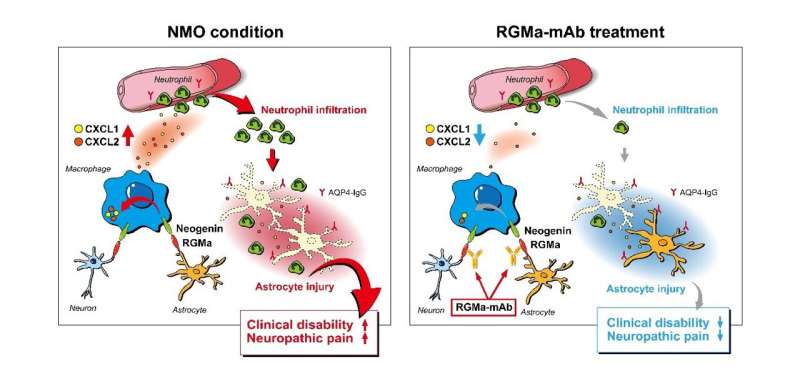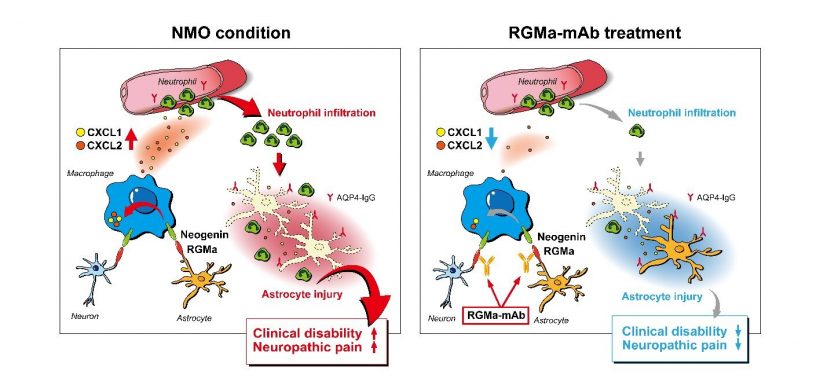
Autoimmune diseases are the molecular equivalent of “friendly fire”: The body attacks itself instead of harmful invaders. Now, researchers from Japan have found that interrupting the complex interplay between different immune cell types can help prevent the damage that this friendly fire causes in one type of autoimmune disease.
In a study published this month in Annals of Neurology, researchers from Osaka University have revealed that treatment with an antibody to a protein called repulsive guidance molecule-a (RGMa) dramatically improves symptoms of neuromyelitis optica, a devastating autoimmune disorder, in an experimental rat model.
Neuromyelitis optica (NMO) is an inflammatory disorder that can cause pain, paralysis, and even death. In most cases, NMO is caused by antibodies that the body develops to a protein called aquaporin-4 (AQP4). These anti-AQP4 antibodies leak into the tissue at sites of nerve damage that also show massive accumulation of neutrophils. This neutrophil build-up is associated with the death of cells called astrocytes, which ultimately causes NMO symptoms.
“We recently found that injecting rats with an antibody to RGMa can decrease the severity of NMO symptoms,” says Shosuke Iwamoto, lead author of the study. “However, it was still unclear how this treatment works mechanistically, whether by affecting AQP4, astrocytes, or some other factor.”
To address this, the researchers used a clinically relevant rat model of NMO to test the effects of the anti-RGMa antibody on disease symptoms, as well as gene and protein expression.
“Our findings revealed a new molecular mechanism of NMO pathophysiology in which RGMa stimulates macrophages to attract neutrophils to the lesions, where they kill off astrocytes,” explains Toshihide Yamashita, senior author.
Importantly, treating rats with an antibody to RGMa prevented these effects, resulting in fewer neutrophils around nerve lesions, less astrocyte killing, and a decrease in symptoms like movement problems and pain.
“Our findings suggest that anti-RGMa antibodies may represent an effective therapeutic strategy for NMO-associated neuropathic pain and motor deficits in patients with NMO,” says Iwamoto.
Source: Read Full Article






